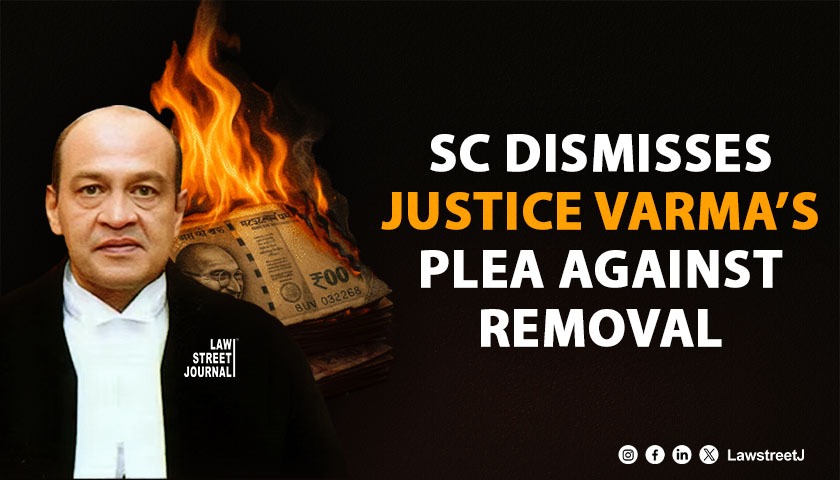NEW DELHI: The Supreme Court on Thursday held that the in-house inquiry procedure to examine conduct of a sitting judge of the constitutional court enjoyed legal sanctity and is not a parallel or extra constitutional mechanism.
The top court dismissed a writ petition filed by Justice Yashwant Varma, indicted by an in-house inquiry report over discovery of cash haul, questioning the validity of actions initiated against him, including the recommendation for his removal.
A bench of Justices Dipankar Datta and Augustine George Masih said Justice Varma's conduct during the proceedings did not inspire confidence as he participated in the in-house inquiry.
The court also held non-grant of hearing to the judge by then Chief Justice of India Sanjiv Khanna, prior to recommending his removal doesn't violate any procedure as such hearing cannot be claimed as a matter of right.
The bench said the then Chief Justice of India and inquiry committee scrupulously followed the procedure but could have avoided uploading of videos related to burning of cash at Justice Varma's residential premises on the night of March 14, 2025.
"It was not required under the procedure to do so...still, nothing turns on it as the judge had not questioned it at the opportune moment," the bench said.
Justice Datta, who pronounced the judgment, also held that the writ petition by Justice Varma was not maintainable in view of his conduct which did not inspire confidence.
In its judgment, the bench said that the court had to "tread the path cautiously lest any observation might prejudice the judge" in any future proceedings.
The court, which framed six questions, also held sending the report to the Prime Minister and President was not unconstitutional.
In his writ petition filed as XXX Vs Union of India, Justice Varma, who was transferred from the Delhi High Court to his parent, Allahabad High Court after the alleged discovery of cash at his residence in March this year, questioned the validity of the in-house procedure, marked by what he claimed as denial of fair hearing and due process.
He also raised the issue of absence of formal complaint before the inquiry was initiated by the judges panel. Justice Varma contended the Supreme Court's act of uploading a press release on March 22, 2025, disclosing allegations against him led to intense media speculation adversely affecting his reputation and violating the right to dignity.
Justice Varma also contended the judges committee, formed by the CJI Sanjiv Khanna, denied him an opportunity to rebut the allegations or to cross examine witnesses.
He contended the recommendation to remove him was made without any personal opportunity to explain his case. He also claimed that the committee failed to investigate the basic facts, especially those related to the alleged discovery of cash on March 14.
On July 30, 2025, the apex court reserved its judgment in the matter.
On March 22, 2025, the then CJI set up the committee headed by Justice Sheel Nagu, Chief Justice of the High Court of Punjab and Haryana, and comprising Justice G S Sandhawalia, Chief Justice of the High Court of Himachal Pradesh and Ms Justice Anu Sivaraman, judge of the High Court of Karnataka.
The committee finalised its report on May 3, 2025 indicting him, upon analysing the statements of 55 witnesses, including of Justice Varma and conducting the probe for 10 days. Then CJI Sanjiv Khanna forwarded the report to the President and the Prime Minister for further action as Justice Varma reportedly refused to step down.
Disclaimer: This content is produced and published by LawStreet Journal Media for informational purposes only and does not constitute legal advice. The views expressed are independent of any legal practice of the individuals involved.















